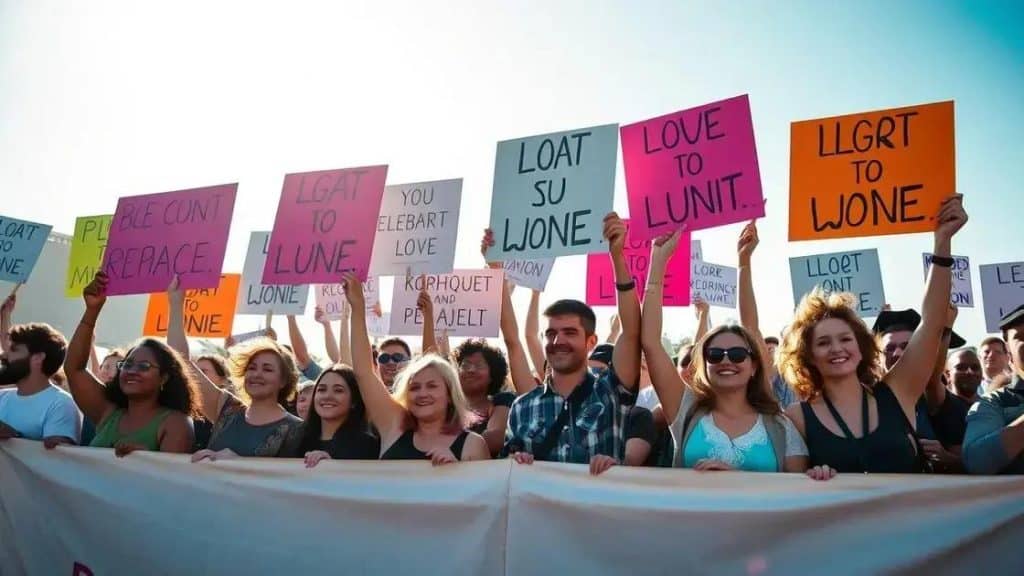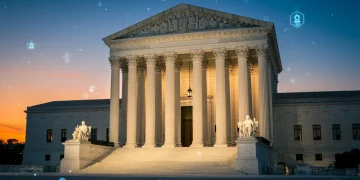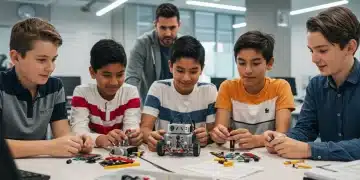Get civil rights updates to stay informed and engaged

Future trends in civil rights activism highlight digital engagement, intersectionality, and grassroots participation, empowering activists to foster collective change and inclusivity in their communities.
Get civil rights updates to stay informed about important changes affecting our society. Understanding these updates not only connects us to current events but also empowers us to engage meaningfully in the ongoing dialogue about equality and justice.
Recent developments in civil rights legislation
Recent developments in civil rights legislation are crucial for understanding the current landscape of equality and justice in our society. These changes reflect ongoing discussions and efforts to better protect the rights of all individuals.
Key Legislative Changes
In the past few years, several significant laws have been introduced and passed. These laws aim to address various forms of discrimination and inequality. For example:
- The Equality Act, which seeks to expand protections against discrimination based on sexual orientation and gender identity.
- New voting rights legislation designed to make access to the ballot easier for all citizens.
- Policies aimed at protecting marginalized communities from hate crimes and abuses.
These laws are often influenced by both grassroots movements and political action at multiple levels. Advocacy from groups like the ACLU and the NAACP plays a critical role in pushing these changes forward.
The Impact of Recent Developments
The recent legislative changes have had a profound impact on communities across the country. They offer enhanced protections and foster an environment where individuals can exercise their rights more freely. As civil rights updates continue to unfold, they not only reflect the progress we’ve made but also the work that still lies ahead.
Furthermore, public response to these laws can vary significantly, with some communities embracing these changes while others may resist them. Understanding these dynamics is essential for engaging in informed discussions about civil rights.
Staying updated on these developments allows individuals to participate actively in advocacy efforts and local dialogues. By engaging with the material and discussing it with peers, we can work together toward a more equitable future.
Key organizations advocating for civil rights
Several key organizations are at the forefront of advocating for civil rights. These groups play a vital role in promoting equality and justice for all individuals, regardless of their background.
Leading Advocacy Groups
Among the most influential are:
- American Civil Liberties Union (ACLU): This organization fights for individual rights and liberties, addressing issues like free speech, privacy rights, and discrimination.
- National Association for the Advancement of Colored People (NAACP): With a long history of fighting racial injustice, the NAACP focuses on ensuring political, educational, social, and economic equality.
- Human Rights Campaign (HRC): HRC works to achieve equality for LGBTQ+ people, advocating for legislative changes and public awareness.
- Southern Poverty Law Center (SPLC): Known for tracking hate groups, SPLC fights against bigotry and works for justice through litigation and education.
These organizations rely on grassroots supporters and extensive networks to amplify their messages. Their advocacy efforts often include public awareness campaigns, legal challenges, and community organizing.
The Role of Community Engagement
Community engagement is essential in advancing civil rights. Many of these organizations encourage local participation, allowing individuals to voice their concerns and contribute to the cause. Through events, workshops, and forums, they foster discussions that can lead to meaningful change.
In addition, partnerships with local businesses and educational institutions help amplify their reach and support community initiatives. By empowering individuals, they create a more informed and active citizenry.
Staying informed about the work of these organizations not only connects people to crucial issues but also inspires action. Engaging with their resources can help individuals better understand the civil rights landscape and how they can contribute.
Impact of social media on civil rights awareness

The impact of social media on civil rights awareness has been profound and transformative. Platforms like Twitter, Facebook, and Instagram allow activists to share information quickly and mobilize support on a large scale.
Enhancing Visibility
Social media increases visibility for civil rights issues. With just a few clicks, information can reach millions of users around the globe. This rapid dissemination of information raises public awareness of injustices that might otherwise go unnoticed. It enables individuals to learn about issues such as racial inequality, voting rights, and police brutality in real time.
- Viral Campaigns: Movements like #BlackLivesMatter have gained momentum through social media, raising critical discussions about systemic racism.
- Real Stories: Personal accounts shared online give a human face to these issues, promoting empathy and understanding.
- Community Building: Social media helps create online communities that can share resources and organize events effectively.
This connectivity fosters a sense of solidarity among activists and supporters, making it easier for them to coordinate efforts and advocate for change collectively.
Challenges of Misinformation
While social media is a powerful tool for raising awareness, it also poses challenges. Misinformation can spread just as quickly as accurate information. Many users encounter false narratives that distort the realities of civil rights issues. This confusion can lead to misguided actions or apathy towards important causes.
It’s essential for users to critically evaluate the sources of their information and support organizations that strive for accuracy. By understanding the challenges posed by misinformation, individuals can become more informed and effective advocates.
The relationship between social media and civil rights is not just a trend; it’s a fundamental shift in how awareness is built and sustained. Embracing the positive aspects while being cautious of misinformation is vital for pushing the movement forward.
How to get involved in civil rights movements
Getting involved in civil rights movements can be a powerful way to contribute to social change. Everyone can play a role in advocating for justice and equality, and there are many ways to take action.
Understanding the Issues
The first step is to educate yourself about the key civil rights issues in your community and around the world. Understanding topics such as racial inequality, voting rights, and discrimination is vital for effective advocacy.
- Research Organizations: Explore different organizations that focus on civil rights issues that matter to you.
- Follow the News: Stay up to date with recent developments in civil rights legislation.
- Join Discussions: Participate in community forums or online discussions to share ideas and learn from others.
Once you have a good grasp of the issues, you can choose how to get involved.
Ways to Participate
There are numerous ways to engage with civil rights movements. Volunteering with local organizations is a great start. Many groups operate on tight budgets and rely heavily on volunteers to carry out their missions.
You can also participate in peaceful protests and rallies. These events are not just a way to express your beliefs but also an opportunity to connect with others who share your passion for change. Sharing awareness on social media helps to amplify the message and reach a broader audience.
Additionally, donating funds to civil rights organizations can be impactful. Financial support helps these organizations continue their essential work in advocacy, legal support, and more.
If you’re willing to take it a step further, consider becoming an activist by raising awareness on specific issues. You could organize local events, write articles, or create content that educates others about civil rights.
Remember that every effort counts, no matter how small. Whether it’s a conversation with a friend or organizing a community event, your involvement can make a difference. Together, we can work towards a brighter future where everyone’s rights are respected and upheld.
Future trends in civil rights activism
Future trends in civil rights activism are vital as they shape how movements pursue justice and equality. Advances in technology and changing social norms are bringing new strategies and tools to the forefront.
Digital Activism
One significant trend is the rise of digital activism. Social media platforms like Twitter, Instagram, and TikTok allow activists to reach wider audiences quickly. Issues can go viral, prompting immediate action and awareness.
- Hashtag Movements: Campaigns utilizing hashtags help organize efforts and engage supporters globally.
- Online Petitions: These enable people to lend their voices and influence decision-makers easily.
- Virtual Events: Webinars and online rallies facilitate participation without geographical barriers.
As technology evolves, so do the methods used to mobilize support and raise awareness.
Focus on Intersectionality
Activism is becoming more inclusive and intersectional. Understanding how various identities—such as race, gender, and class—interact is crucial for effective advocacy. Movements now center on the experiences of marginalized communities, recognizing their unique challenges.
This broader perspective encourages collaboration across diverse groups. It fosters solidarity and strengthens the fight for comprehensive civil rights.
Grassroots Engagement
Future movements are expected to emphasize grassroots engagement. Building local coalitions and encouraging community involvement is essential. Activists will work more closely with communities to understand their needs and concerns.
This personalized approach creates tailored solutions, ultimately leading to stronger impacts. By leveraging local knowledge, activists can drive meaningful change from the ground up, ensuring that all voices are heard.
As these trends in civil rights activism develop, the movement continues to adapt and evolve. Each new strategy offers opportunities for greater participation and impact in the ongoing fight for equality and justice.
FAQ – Frequently Asked Questions about Civil Rights Activism
What role does social media play in civil rights activism?
Social media enhances the visibility of civil rights issues and allows activists to mobilize support quickly through viral campaigns.
How can I get involved in civil rights movements?
You can get involved by educating yourself, volunteering with organizations, participating in events, and using social media to raise awareness.
What is the importance of intersectionality in activism?
Intersectionality helps activists understand how different identities and experiences intersect, leading to more inclusive and effective advocacy.
What are grassroots movements, and why are they important?
Grassroots movements focus on local engagement and community involvement, which helps create tailored solutions that resonate with the specific needs of communities.





